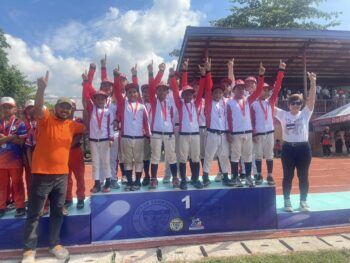GENERAL SANTOS CITY (MindaNews/12 July) – Region 12 or Southwestern Mindanao’s growing agribusiness, aquamarine, oil palm, mining and tourism industries have emerged as the top job destinations for skilled workers in the region within the next decade, a study on the region’s labor market situation showed.
Lawyer Ma. Gloria Tango, Department of Labor and Employment (DOLE)-Region 12 director, said Monday a recent nationwide labor market study conducted by the agency noted that the five industries will continue to anchor the region’s key economic expansions and increase the area’s employment opportunities for the next 10 years.
Region 12 covers the provinces of South Cotabato, Sultan Kudarat, Sarangani, North Cotabato and the cities of General Santos, Koronadal, Cotabato, Kidapawan and Tacurong.
“These industries were identified as our key employment generators and the main players in the local labor market in the next five to 10 years,” she said in a press briefing.
Tango said the study is part of the agency’s “Project Jobs Fit: The DOLE 2020 vision,” a 10-month nationwide research project aimed at identifying local and global industries that would drive employment growth and determine the skills requirements that would be in demand until the year 2020.
The DOLE study mainly involved environmental scanning, information gathering, networking, consultation and labor market ‘signaling’ activities.
In Region 12, she said they earlier conducted a series of consultations with major industry players in the area to identify various employment gaps and issues, specifically the growing mismatch between the skills requirements of local industries and the region’s
available work force.
During the consultations, Tango said companies engaged in agribusiness, aquamarine, oil palm, mining and tourism, which include hotels and restaurants, specifically raised the need for the region to produce more highly-skilled and competent workers that would match specific industry requirements.
She cited the case of the aquamarine industry wherein the demand for skilled fishing workers reportedly remains high among companies engaged in fishing operations in the high seas as well as inland fishery ventures.
But she said some tuna fishing fleets based in the area presently lack crew members that have passed the required qualification standards.
“There’s a shortage of qualified workers for some specific jobs in the fishing industry. In fact, the rising cases of pirating of highly-skilled workers among our tuna fishing companies are becoming a headache for the industry,” she said.
Tango said the problem on the lack of highly-skilled workers or qualified applicants also affected agribusiness companies engaging in fruit production and processing, oil palm production and processing as well as some local mining companies.
Aside from the lack of qualified workers, she said companies engaged in hotel, restaurant and tourism ventures complained of the lack of competent trainers and available training programs.
To address the problem, she said the study recommended immediate policy reforms, especially in terms of the delivery of government-led technical and vocational (tech-voc) training programs in the region.
Tango said it also cited the need for the alignment of available training programs and courses offered by colleges, universities and tech-voc institutions with the needs of the region’s identified key employment generators.
“It also suggested the need more tech-voc scholarships and direct tie-ups between academic or training institutions and industry players such as mining and oil palm companies based in the area,” she said.
Tango said they are initially planning to gather various industry players, concerned government agencies as well academic and training institutions in the area to discuss the problems and set some possible interventions.
She said they will also tap the Regional Development Council’s social development committee, which comprise various state colleges and universities as well as private and government agencies in the region, to help identify strategies and mechanisms that will help address the problem.
The official added that they will also provide copies of the study to various secondary schools in the region and encourage school authorities to use them in their career guidance activities. (Allen V. Estabillo/MindaNews)






